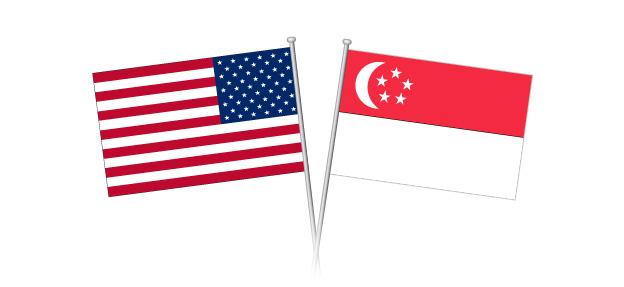Singapore and the USA state they may regulate certain ICOs
News:
Date added: 18.09.2017
Less than a week after the SEC said that it may regulate certain crypto token sales, better known as ICOs, Singapore has followed suit to say it too will regulate offerings that are deemed to be securities.
Already a global financial hub, Singapore has developed into a destination of sorts for ICOs, with the likes of TenX ($80 million), Golem ($8.6 million) and Qtum ($15.6 million) among those to have held ICOs from the country. In an era of uncertainty around the way traditional financial regulators will deal with the burst in alternative funding via ICOs, Singapore’s central bank’s move to tokenized its currency was seen as a positive validation by many in the crypto industry.
Indeed, some consider Singapore to be an ‘ICO Haven’ — a Wired story in March stated that local regulators “do not consider this kind of digital token to be a security.”
Well, that’s not quite true, it turns out. Today the MAS, Monetary Authority of Singapore, published a note to inform that it will regulate some (but seemingly not all) ICOs.
The takeaway from the six point bulletin is that MAS will regulate an ICO offering if it looks like a product that falls into Singapore’s Securities and Futures Act, i.e. if it behaves like a stock or any other security. MAS will also regulate exchanges and other services that enable post-ICO coin trading, the note said.
It all sounds simple enough, but the judge of what constitutes a ‘security’ is down to the regulator itself, and at this point it isn’t clear exactly what the considerations are.
The most pertinent piece of advice from MAS is an obvious one. Any company or individual considering an ICO that involves Singapore should “seek independent legal advice to ensure they comply with all applicable laws, and consult MAS where appropriate.”
Beyond running an ICO for a business that is located in Singapore, MAS could also take interest in ICOs that accept money from buyers who are Singaporean or those who are based in the country.
So, far from doom and gloom, Singapore’s financial regulator has come out with an acknowledgement of the rise of ICOs in its domain and, by saying it will regulate certain offerings, it has eased some uncertainties around the legal status of this fast-growing fundraising option. Now we’ll have to wait to see which, or indeed whether any, upcoming ICOs fall into its securities basket and how they are dealt with.
Already the MAS disclosure has been welcomed by one industry body, ACCESS, which is comprised of representatives from Singapore’s cryptocurrency and blockchain industries.
“ACCESS welcomes today’s statement from MAS. They recognize the wide variety of digital tokens available and that not all fall under the remit of the SFA. We appreciate their clarification and reiteration of their position on virtual currencies,” a spokesperson told TechCrunch.
MAS previously issued advice on cryptocurrencies like bitcoin and ether, which is used for ICOs, but it released this new note in response to the way crypto has evolved into a mechanism for raising funding.
“MAS’ position of not regulating virtual currencies is similar to that of most jurisdictions. However, MAS has observed that the function of digital tokens has evolved beyond just being a virtual currency. For example, digital tokens may represent ownership or a security interest over an issuer’s assets or property,” it wrote.
Please, contact the lawyers of Law&Trust International for more detailed information regarding this issue.





